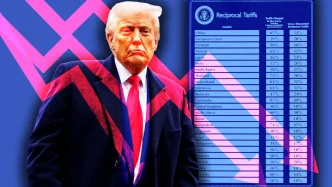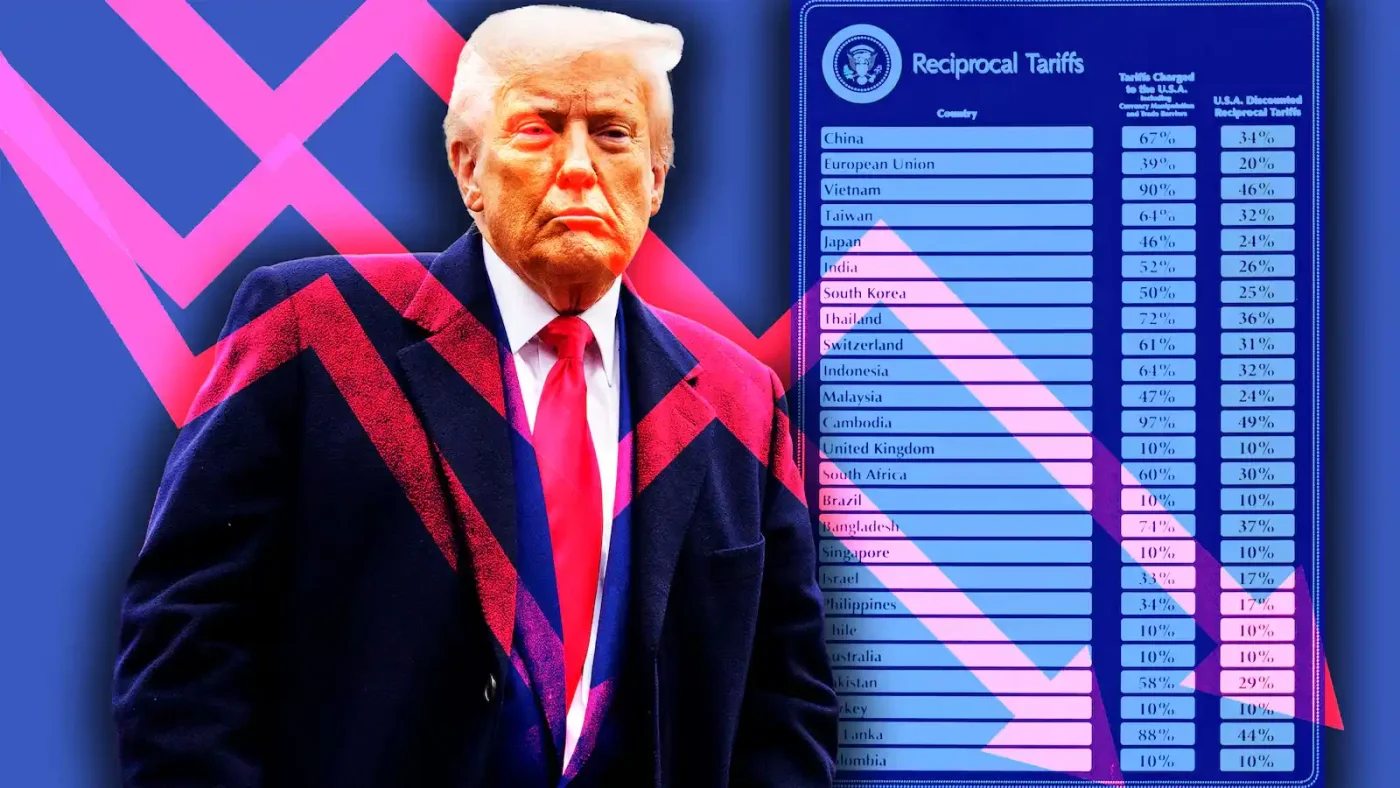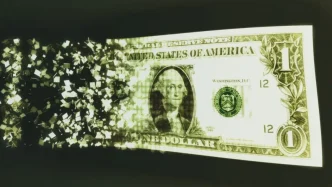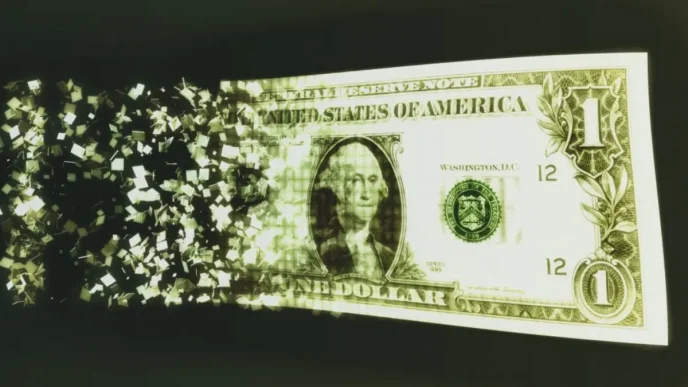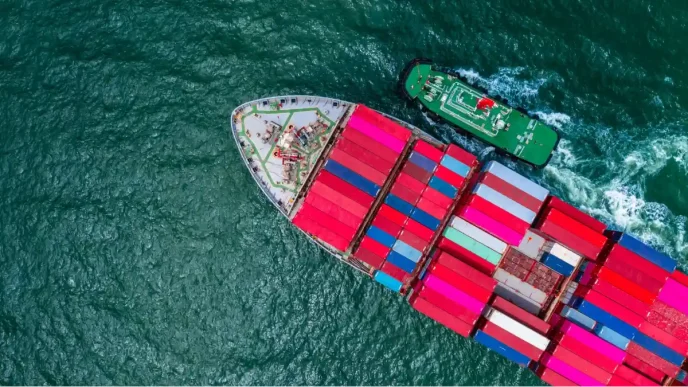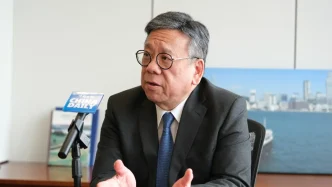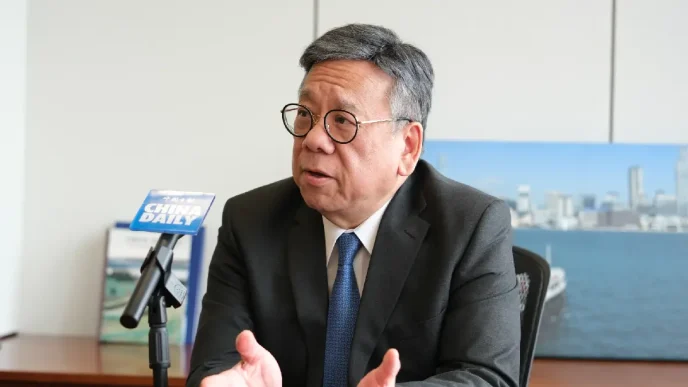Imagine a Thailand where bustling markets in Bangkok slow to a trickle, factories in Chonburi lay off workers, and the vibrant tourism industry. Thailand welcomed 36 million visitors last year but now faces an uncertain future. While the Baht to USD exchange rate is presently on a high, its clear that something greater is at play—Chinese tourism has slowed to a frightening 12% in Phuket, property developers are standing with thousands of unsold homes and tourist numbers have already dropped. This is the price Thailand is already paying for US trade tariffs.
A looming global trade war, sparked by U.S. tariffs, could devastate Thailand’s export-driven economy, with the IMF warning of a crisis deeper than any in recent memory.
From factory workers in Chonburi to street vendors in Pattaya, the ripple effects threaten livelihoods and tourism, unless Thailand acts swiftly.. This isn’t a dystopian fantasy but a stark warning from the International Monetary Fund (IMF), which predicts that a global trade war, ignited by U.S. tariffs, could hit emerging markets like Thailand harder than any economic shock in recent times. For a nation reliant on exports and foreign visitors, the stakes couldn’t be higher. The IMF’s alert, coupled with Thailand’s sluggish response, paints a troubling picture—one that demands urgent action to protect jobs, businesses, and the dreams of millions.
Gita Gopinath, the IMF’s First Deputy Managing Director, told the Financial Times that escalating trade tensions are creating unprecedented challenges for emerging-market central banks, including Thailand’s. Unlike past crises where slashing interest rates or rolling out stimulus was a clear fix, today’s trade war brings unpredictable blows—falling demand, disrupted supply chains, and volatile capital flows. “The challenge this time is greater,” Gopinath said, emphasizing that tariffs are reshaping global markets in ways that leave policymakers scrambling.
For Thailand, Southeast Asia’s second-largest economy, the trade war isn’t a distant storm—it’s a direct hit. Exports, from electronics to rice, account for nearly 60% of Thailand’s GDP, with the U.S. as a key market. New tariffs, announced by the Trump administration on April 2, 2025, dubbed “Liberation Day,” sent shockwaves through global markets. Posts on X reflect growing alarm, with Thailand’s central bank governor, Sethaput Suthiwartnarueput, warning that redirected goods flooding Thai markets could “leave deep scars” on industries like automotive and furniture manufacturing.
A Blow to Thai Livelihoods
The trade war’s impact on Thailand’s 71 million citizens is already emerging. In Chonburi’s industrial heartland, factories producing car parts and electronics for export face shrinking orders as tariffs disrupt global supply chains. Workers like Somchai, a 38-year-old machinist in an auto parts plant, fear layoffs. “If orders drop, my job goes,” he told local media, echoing the anxiety of thousands. The EEC, Thailand’s flagship economic zone, could see investment stall, threatening the 16,000 jobs tied to projects like the high-speed rail linking Don Mueang, Suvarnabhumi, and U-Tapao airports, valued at 224 billion THB (6.85 billion USD).
Small businesses, the backbone of Thailand’s economy, are equally at risk. In Pattaya, street vendors and guesthouse owners rely on tourist spending, but a trade-war-induced global slowdown could deter visitors. The Tourism Authority of Thailand reported 36 million tourists in 2024, contributing over 2 trillion THB (61.2 billion USD) to the economy. A dip in arrivals would hit vendors like Nonglak, who sells mango sticky rice near Jomtien Beach. “Fewer tourists mean fewer customers,” she said. “I can’t afford that.”
The IMF warns that emerging markets face a demand-side shock—falling inflation and slowing growth—unlike the inflationary pressures in developed economies. This leaves Thailand’s central bank in a bind. While the U.S. Federal Reserve hesitates to cut interest rates, citing tariff-driven inflation risks, Thailand may need to maintain or expand stimulus to prop up demand. Yet, higher interest rates in the U.S. could trigger capital outflows, weakening the Thai baht, which has already slid in recent months, according to X posts. A weaker baht raises import costs, squeezing households already grappling with rising prices for essentials like rice and fuel.
Tourism Under Threat
For tourists, Thailand’s allure—its beaches, temples, and vibrant street markets—remains strong, but the trade war could dim its shine. A weaker baht might make Thailand cheaper for visitors, with a typical meal costing 100-200 THB (3.06-6.12 USD) and mid-range hotel stays at 1,500-3,000 THB (45.9-91.8 USD) per night. However, global economic uncertainty could reduce tourist arrivals, especially from key markets like China and Europe. The high-speed rail project, set to connect Bangkok’s airports to Pattaya and Rayong for 400-600 THB (12.24-18.36 USD) per trip, aims to ease travel, but its 224 billion THB (6.85 billion USD) budget relies on foreign investment that tariffs could scare away.
Posts on X highlight traveler enthusiasm for projects like the rail, with some comparing it to Japan’s Shinkansen, but others worry about Thailand’s economic stability deterring visitors. A slowdown in tourism would ripple through coastal towns, where businesses depend on the 2 trillion THB (61.2 billion USD) tourist economy. For example, Pattaya’s Walking Street, lined with bars and restaurants, could see quieter nights, while Rayong’s golf courses and beaches might attract fewer international visitors.
Financial Markets and Global Context
Despite the gloom, some emerging markets have seen a rebound. The MSCI Emerging Markets Index (excluding China), a target of U.S. tariffs, has surged nearly 20% since its post-tariff low in April 2025. Currencies like the Mexican peso and South Korean won have gained over 5% against the USD, reflecting investor bets on stimulus in these economies. Thailand’s baht, however, remains volatile, sensitive to global risk sentiment, as noted by the OECD. The OECD warns that capital flow volatility could lead to currency depreciation and higher financing costs, a risk Thailand cannot ignore.
Thailand’s central bank is exploring a 157 billion THB (4.8 billion USD) stimulus fund, with over 100 proposals under review to counter tariff impacts through infrastructure and community projects. Yet, critics argue this is a short-term fix. Unlike countries diversifying export markets or investing in domestic innovation, Thailand lacks a robust long-term strategy, leaving it exposed to a fragmented global trade system.
A Geopolitical Complication
Adding to Thailand’s woes is the Thai-Cambodian border dispute, a simmering tension over territorial claims near the Preah Vihear temple. Unresolved, it could further erode investor confidence, as foreign firms hesitate to commit to a region with geopolitical risks. The dispute, coupled with trade war pressures, creates a perfect storm for Thailand’s economy, which relies on 1.2 trillion THB (36.7 billion USD) in annual foreign direct investment. A shaken investor base could delay projects like the EEC’s high-tech hubs, costing jobs and growth.
A Call to Action
Thailand stands at a crossroads. The IMF’s warning is a wake-up call: this trade war could inflict deeper, longer-lasting damage than any recent crisis if the country doesn’t act decisively. Waiting it out isn’t an option—the world won’t pause for Thailand to catch up. The government must move beyond short-term handouts, like the proposed 157 billion THB (4.8 billion USD) stimulus, and forge a bold strategy. This could include diversifying export markets to ASEAN neighbors, investing in green technology to attract global firms, and resolving the border dispute to restore investor trust.
For Thai citizens, the trade war threatens not just jobs but dreams—of owning a home, educating children, or simply making ends meet. Workers like Somchai need retraining programs to shift to new industries if exports falter. Vendors like Nonglak need policies to sustain tourism, such as marketing campaigns to draw visitors despite global uncertainty. The high-speed rail, with its 224 billion THB (6.85 billion USD) promise of connectivity, could be a lifeline, but only if funded and completed on time.
Tourists, too, have a stake. A Thailand with fewer crowds might appeal to some, but a struggling economy could mean higher costs or reduced services. The government must ensure projects like the rail, with fares of 400-600 THB (12.24-18.36 USD), deliver on their promise to make travel seamless, keeping Thailand competitive against rivals like Vietnam.
The upshot of this is that Thailand faces a trade war crisis that could dwarf past economic shocks, threatening 16,000 jobs in projects like the high-speed rail and the 2 trillion THB (61.2 billion USD) tourism industry. With 157 billion THB (4.8 billion USD) in stimulus under review, Thailand must act fast to diversify exports, resolve geopolitical tensions, and protect its people and visitors from a global economic storm.
A Path Forward
Thailand’s history of resilience offers hope. The nation has weathered storms before, from financial crises to political upheaval. Now, it needs a unified response: government, businesses, and citizens working together. The central bank could explore targeted stimulus, like subsidies for small businesses or tax breaks for export diversification, costing an estimated 50-100 billion THB (1.53-3.06 billion USD). Investing in digital infrastructure, such as 5G networks for the EEC, could attract tech firms, offsetting tariff losses. Resolving the border dispute through diplomacy would signal stability, potentially unlocking 200 billion THB (6.12 billion USD) in stalled investments.
For Thai citizens, the government could launch retraining programs, costing 10-20 billion THB (306-612 million USD), to prepare workers for green or tech industries. For tourists, aggressive promotion—perhaps a 5 billion THB (153 million USD) campaign—could sustain the 36 million annual visitors, ensuring markets and beaches stay vibrant.
The world is watching. Thailand’s response will determine whether it emerges stronger or succumbs to a trade war’s scars. The time for bold action is now—before the storm engulfs the Land of Smiles.

